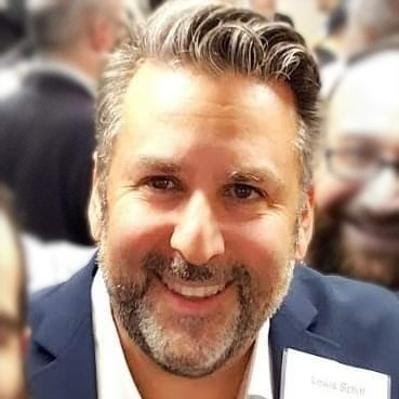How I Did It: Grow Out, Not Up
Tom Szaky started TerraCycle in 2002 with high ideals and a great idea. As a sophomore at Princeton, he devised a system that took food waste from the university’s cafeterias and fed it to red worms. These worms produce “castings” (aka poop) that make highly potent plant food. He packed his product in repurposed soda bottles equipped with spray tops to meet the young company’s mission: “eliminating the idea of waste.”
By all measures, TerraCycle was a great success. Just three years after launch, the company was selling to Walmart and Home Depot across the U.S. and Canada with revenues of $1 million. But Szaky saw a problem: There was an upper limit to the organic fertilizer market. Sooner or later, his niche product would be bumping up against that ceiling.
There are two kinds of scalability: vertical, in which you increase the input and output from the same process, and horizontal, in which you replicate a business model in multiple ways. All things being equal, horizontal scalability represents the biggest opportunity with the smallest investment. TerraCycle’s early business model relied on vertical scalability for growth. For one thing, it needed a steady source of packaging. So the company launched a “Bottle Brigade” that challenged consumers to collect the soda bottles for recognition and rewards.
This modest beginning would become the model for TerraCycle’s global growth.
Soon enough, TerraCycle began recruiting corporate and government sponsors for these initiatives and expanding into different types of packaging considered “non-recyclable,” otherwise destined for landfills. In 2007, it launched a partnership with Honest Tea to collect and recycle drink pouches. Partnerships with Stonyfield Farm and Clif Bar for yogurt cups and energy bar wrappers, respectively, soon followed.
“Every material is recyclable,” Szaky explains. “It’s just a matter of economics. If it costs more to recycle than it does to use virgin materials, companies will choose the latter.”
By contrast, TerraCycle had discovered a financial equation that made recycling traditionally non-recyclable materials not only economically viable, but actually profitable for is customers:
- Develop relationships with consumer packaged goods (CPG) makers, municipalities and retailers to create a recycling stream specifically for a specific product or package that would otherwise be non recyclable — even cigarettes and disposable diapers.
- Leverage these relationships to create a process at scale to reduce the cost of recycling
- Provide its partners with valuable PR and marketing opportunities that had a measurable impact on their brands
- Later, rinse (literally!) and repeat.
As you can see, TerraCycle’s vertical growth model is now horizontal: New partnerships. New materials and products. New geographies. New revenue opportunities. Brands that now include Procter & Gamble, Right Guard, L’Oreal, and Unilever can boast turning their packaging into playground equipment, tote bags, truck parts, park benches, and more in 20 countries around the world while TerraCycle generates an estimated $92 million in revenue.
TerraCycle is unique in many ways, but it’s also a textbook example of a smart business. A smart business can start out as small as you please, without requiring huge outside investments. It grows the old fashioned way - organically, by consistently reinvesting profits.. It’s also rarely glamorous or exciting. That describes TerraCycle’s original business to a T. Is there anything less glamorous or exciting than a bin full of worms consuming garbage and pooping out fertilizer?
To be really smart, however, a business should provide a service to larger companies that help these organizations solve three problems:
Payroll costs. Every new hire at a large company means higher costs and reduced profits. If they can hire your business to do what a full time employee can do, but for less, you’ve got the job. And P.S., you can almost always do the job for less, since it’s your specialty and you don’t have their overhead.
Technology. Similarly, new technology is a big investment that comes with big headaches for large organizations. They don’t like to risk money on anything that’s not tried and true, which is to say, already out of date. By taking on this risk for them, you gain an instant advantage. You know how to squeeze the most value possible out of your technology, and you make every investment count.
Cash flow. It’s sad but true that small companies often end up bankrolling the operations of big companies. How? Just look at any typical invoice, with 30 or 45-day terms. You’re essentially a banker loaning your customer money. Big companies love that.
When TerraCycle pivoted to its sponsored recycling model, it became very smart. It solved a big problem for its customers that these giant brands couldn’t do for themselves. It transformed packaging from a cost center to a profit-driver. TerraCycle could take this on more economically, efficiently and effectively than Colgate or Tide because its workforce and technology were designed to do exactly that.
Despite — or perhaps because of — its success, TerraCycle remains committed to its original mission of “eliminating the idea of waste,” and Tom Szasky is still coming up with new ways to fulfill it. A couple of years ago, TerraCycle launched Loop, a division that helps corporate customers develop fully reusable packaging along with a circular process that parallels its recycling stream. Loop is TerraCycle’s Moonshot — a paradigm-shifting leap of faith fueled by the parent company’s money making operations. That’s a story for another time, but let me leave you with these questions: Is your company smart enough to become a moneymaker? Can that moneymaker then propel your moonshot? Food for thought.





